03 Sep 2019 - {{hitsCtrl.values.hits}}
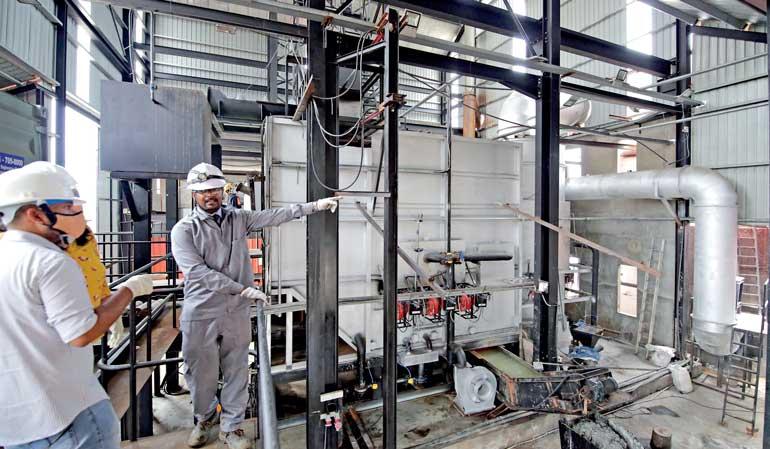
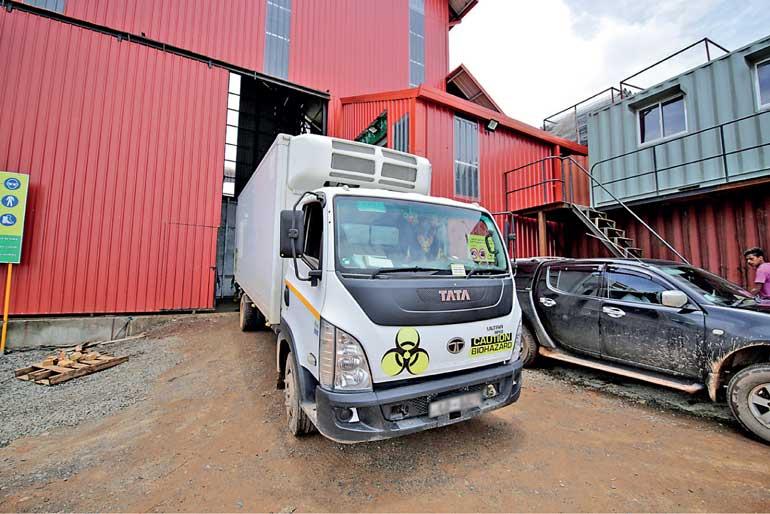
 By Lahiru Pothmulla
By Lahiru Pothmulla
The disposing of clinical waste, or waste in general, is a foetid issue, with the country lacking a national policy in garbage disposal and many vested parties including politicians interfering in the matter.
The Aruwakkalu Waste Management Project which commenced recently to dump waste collected from Colombo, is already facing various hurdles.
It was only as recent as a week ago that the Wattala Pradeshiya Sabha members expressed their opposition to a clinical waste management centre in Kerawalapitiya citing environmental concerns.
They accused the PS Chairman of having given approval to set up a “clinical waste management centre in Kerawalapitiya” without the approval of the council.
However, it was revealed that the PS members, who had reportedly visited and inspected the facility, have been making misleading remarks over the waste management centre due to a tussle with the PS Chairman.
The Daily Mirror learnt that Sisili Hanaro Encare (Pvt) Ltd, the said clinical waste management centre, had been set up by obtaining all the necessary approvals of relevant authorities.
Though council members claimed that the waste management centre had been set up in Muthurajawela, it has been set up at a plot of land in Kerawalapitiya, a zone which was declared as a waste management park by the Sri Lanka Land Reclamation and Development Corporation (SLLRDC) in 2017.
Sisili Hanaro Encare (Pvt) Ltd has a long history of clinical waste management in the country and is the only such facility provider in the country.
The company opened its first clinical waste management facility at Mulleriyawa back in 2014 and then shifted to the Kerawalapitiya waste management park in 2017.
During a site visit, General Manager of Sisili Hanaro Encare, Yasantha Gunaratne said their project was a result of a tripartite agreement they signed with the Ministry of Health and the Central Environmental Authority (CEA) of the Ministry of Environment.
Mr Gunaratne said they have all the approvals including the Initial Environmental Examination (IEE) approval by the CEA.
“We have the clearance from the Ceylon Electricity Board (CEB) that our facility is not within the Kerawalapitiya-Kotugoda transmission line, height clearance for chimney from the Civil Aviation Authority of Sri Lanka (CAASL) and the approval from the Wildlife Conservation Department ensuring that we are outside the Muthurajawela Sanctuary and proposed extension of the sanctuary. We also have the approval of the Wattala Divisional Secretariat and the Pradeshiya Sabha. If the Pradeshiya Sabha Chairman has given approval without the council’s consent, it is something the council should address on,” he said.
One of the other allegations of the PS councillors was that clinical waste had been stored unprofessionally and imported clinical waste could also be found at the facility.
Mr Gunaratne rejected the allegations. “During the time we had to shift from Mulleriyawa to Kerawalapitiya, there were clinical waste accumulated. Since we had no facility, plus an incinerator, we told the Ministry of Health that we couldn’t process any clinical waste. The Ministry insisted that we find a solution. Therefore, we requested for storage licences including the Schedule Waste Management and EPL approvals to store clinical waste at containers after disinfecting them. Many people, including PS members come here to inspect the facility, commend for doing a good job and after leaving the premises, make different comments,” he said.
There are 30 containers at the facility and several more at the Peradeniya, IDH, Karapitiya and Kalutara Hospitals. “Had we not obtained storage licences and stored clinical waste in containers, they would have ended up on roadside,” he said.
He said all the lorries which arrive at the facility release collected clinical waste at the incineration on a daily basis. “Therefore, we don’t have a backlog. Once we expand the project and go for the next incineration, we can get rid of the clinical waste stored in containers within three months,” he said.
How Sisili Hanaro Encare entered into manage clinical waste
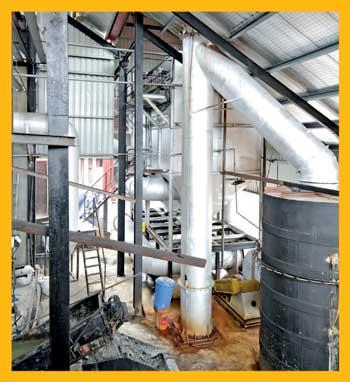 Mr Gunaratne said there had been clinical waste management facilities on a small scale in the country, but they had not survived or lasted long since they had failed to adopt appropriate technical know-how and shape it into Sri Lanka’s conditions.
Mr Gunaratne said there had been clinical waste management facilities on a small scale in the country, but they had not survived or lasted long since they had failed to adopt appropriate technical know-how and shape it into Sri Lanka’s conditions.
“Our waste stream is different from that of other countries. Back in the 2014, the existing company abandoned processing clinical waste. That company also did not have an incinerator. That was when the Ministries of Health and Environment together looked for companies. We had an incinerator but couldn’t fix it due to delayed approvals. For over a year, the incinerator was lying at the Customs with demurrage being incurred. We said that we can install the incinerator, but we need the approvals processed fast and a land. Subsequently, cabinet approval was given in January 2014, and we set up the Mulleriyawa facility” Mr Gunaratne said.
“When I joined, the facility was processing three to four tons of clinical waste on a daily basis and it was on the rise. I proposed to go for an expansion. In 2016, the Health Ministry said they can’t provide us a land and that we have to purchase it. Under the Megapolis Ministry, the SLLRDC declared this land in 2017 as a waste management park. We obtained two acres on a 30- year lease from the waste management park. We received the CEA approval to the project through a committee representing all stakeholders including the members of local authorities.”
“We opened the facility with a small capacity and with the expertise of a Korean firm. All the approvals have been obtained even from local government authorities. Now the Pradeshiya Sabha members say the Chairman had given approval without council’s approval. We told them that we can do a presentation but haven’t heard back from them. We don’t know what their internal issues are. They can visit and they do visit. We make payments and obtain licences and have never done any fraud or given money to anyone. We have even obtained the approval of the aviation authority to the chimneys. The CEA published documents and has all the approvals and it is a public document. Everyone now use this as a bible in hazardous or clinical waste management,” he said.
Facing the challenge of increasing clinical waste
The facility is being expanded with the company making arrangements to fix a plant with 15 tons of treatment capacity.
“We don’t store clinical waste, we burn the input daily. Our seven licensed lorries collect clinical waste from main government hospitals in the Western, Southern and Central province and some private hospital as well. We have a trained staff that know how to handle clinical waste,” Mr Gunaratne said.
Clinical waste put into automatic feeder system is being incinerated through a rigorous process and leave no black smoke.
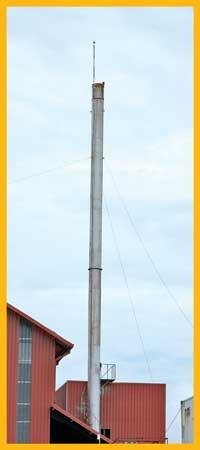 “After air combustion, the combusted gases are further being combusted. The process leave particles such as ash which we use to make interlocks. We spray chemicals to control gas. Only cool gas comes out at the end with 0.02 micron particles. There is no black smoke. We have a computer monitor room and employees can monitor some 30 stages of the incinerating process though an online system,” he said.
“After air combustion, the combusted gases are further being combusted. The process leave particles such as ash which we use to make interlocks. We spray chemicals to control gas. Only cool gas comes out at the end with 0.02 micron particles. There is no black smoke. We have a computer monitor room and employees can monitor some 30 stages of the incinerating process though an online system,” he said.
He said the interlocks had been approved as not containing any toxicities because of the high temperature under which clinical waste is being burnt.
“This is not something we say but is tested by independent government institutions. We also have a waste water plant but there is no water released from clinical waste. The waste water plant is to purify water used water by employees. Through the waste water plant, we feed the green belt which is six metres in width. The green belt goes across the facility and acts as a source of increasing oxygen,” Gunaratne said.
Every three months, Sisili Hanaro Encare are subject to a standards and conditions check by the CEA. Payments by the hospitals for the disposal of their clinical waste are made to the Sisili Hanaro Encare through the CEA, only after the CEA confirms that expected standards are maintained.
“If our facilities are not up to standards, they can withhold our funds,” he said.
Commenting on the opposition by PS members, Mr Karunarathna questioned how genuine those members were in addressing the issue.
“You can’t wake up people who are pretending to be a asleep,” Mr Karunarathna said.
“If someone in a deep slumber, they can be woken up somehow. But if someone is pretending to be sleeping, we can’t wake them up. No matter how much we have addressed the issue with honesty, we cannot help these false allegations that are being made. We have the approval of the divisional secretary, the CEB, the Wildlife Department, CAASL and the Wattala PS. There is no way to obtain approvals in an illegitimate manner. The waste management zone is in Kerawalapitiya but some misunderstand it to be in Muthurajawela. The Wildlife Department proves that we are neither in the sanctuary nor in the buffer zone. The PHIs come and inspect before issuing trade licence,” he said.
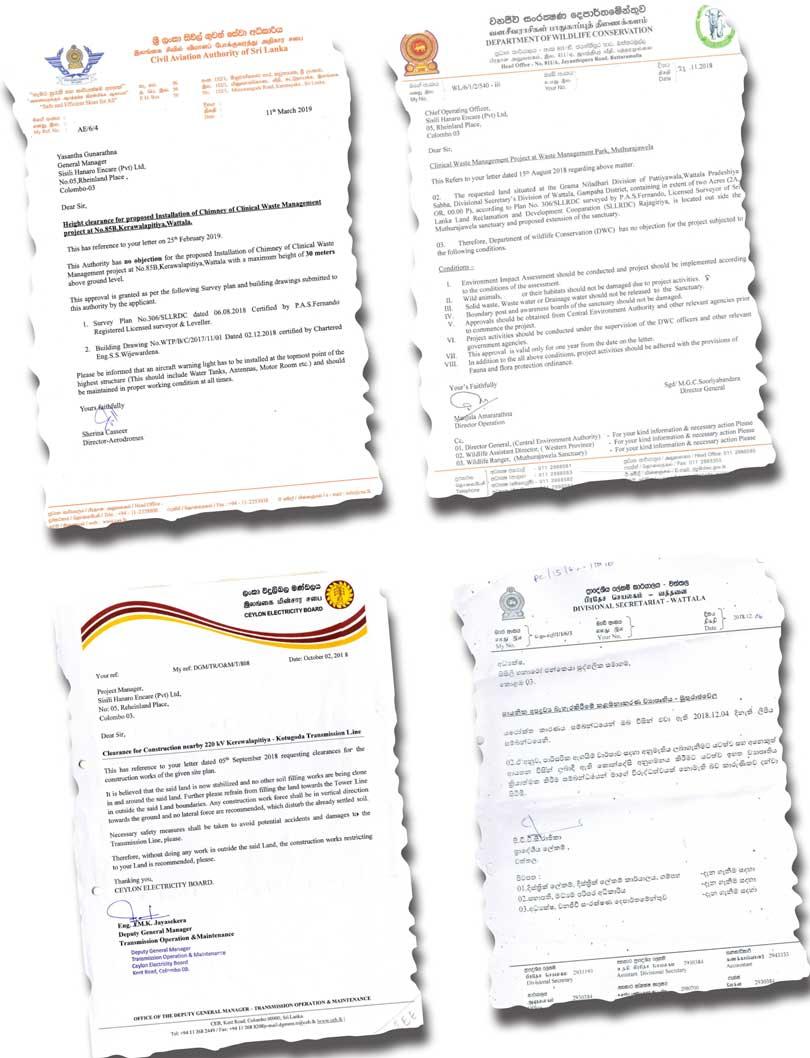
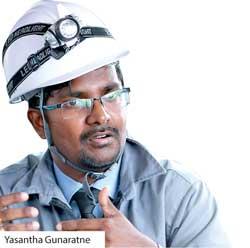
We don’t store clinical waste, we burn the input daily
26 Apr 2024 12 minute ago
25 Apr 2024 2 hours ago
25 Apr 2024 3 hours ago
25 Apr 2024 3 hours ago
25 Apr 2024 4 hours ago